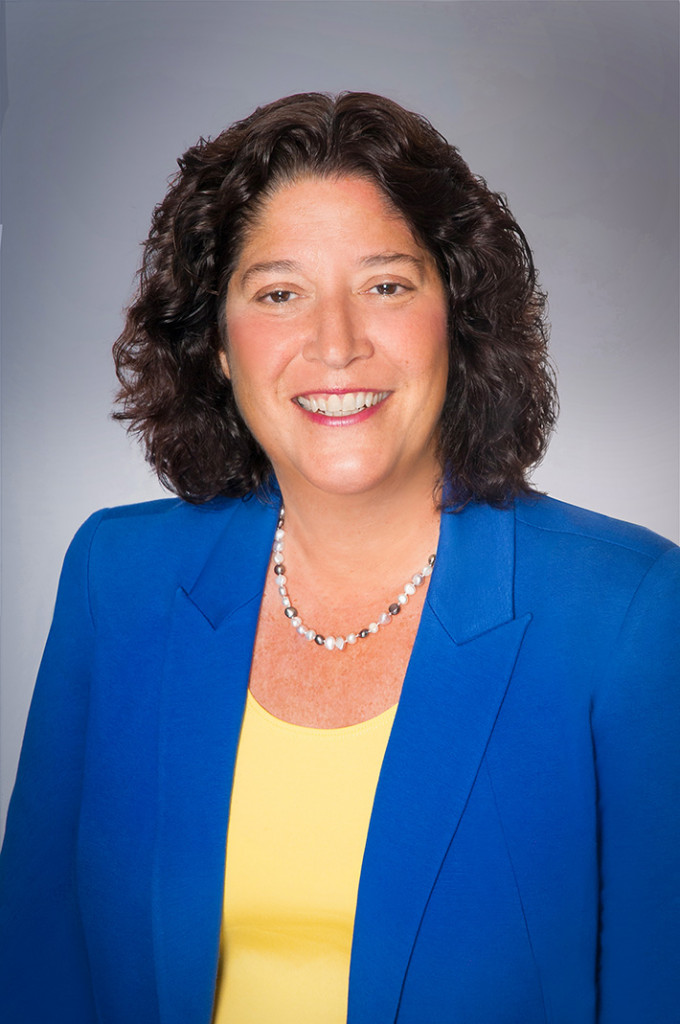Brendan Garrett was a Reporter at deBanked. Articles by Brendan Garrett
Maria Vullo Joins Emigrant Bank
July 31, 2019 Maria Vullo, who served as the Superintendent of New York’s Department of Financial Services (NYDFS) from 2016 to February 2019, has been elected to Emigrant Bank’s Board of Directors. As well as this, Vullo will be joining Emigrant’s holding company, New York Private Bank & Trust (NYPB&T).
Maria Vullo, who served as the Superintendent of New York’s Department of Financial Services (NYDFS) from 2016 to February 2019, has been elected to Emigrant Bank’s Board of Directors. As well as this, Vullo will be joining Emigrant’s holding company, New York Private Bank & Trust (NYPB&T).
The move comes five months after the end of Vullo’s tenure at NYDFS, a role which she was nominated for by Governor Andrew Cuomo. In the period proceeding this, Vullo took up the role of Regulator in Residence at Fintech Innovation Lab’s Partnership Fund for New York City. Here she offered mentorship to enterprise technology companies.
Having been a partner at the international law firm Paul, Weiss, Rifkind, Wharton & Garrison LLP prior to her time with NYDFS, Vullo is versed in civil, regulatory, and criminal issues, as well as securities, banking, insurance, real estate and other financial subjects.
Her tenure as NYDFS Superintendent was noted for its regulations on cybersecurity, transaction monitoring and life insurance. However it was not without hiccups and conflict, as one hearing on online lending saw her display both a distaste for alternative finance and a seeming misunderstanding of how interest rates within the industry are calculated. And upon the Office of the Comptroller of the Currency’s (OCC) proposal to establish a fintech charter that would grant bank-like powers to non-banks, Vullo opposed the rule in a letter, instead favoring state regulation over federal, claiming that such a charter could risk a financial crisis as well as endanger New York state’s sovereignty.
“Her depth of experience in financial services regulation and operations will greatly enhance our ability to provide innovative services to a range of customers in the markets we serve,” said Howard P. Milstein, Chairman, President, and CEO of NYPB&T, “She will be a great addition to our Board.”
Spotlight on deBanked CONNECT Toronto
July 30, 2019 As the heat of the Toronto sun split the stones outside, the crowd inside the Omni King Edward’s seventeenth-floor Crystal Ballroom mingled and munched as part of deBanked’s most recent CONNECT event.
As the heat of the Toronto sun split the stones outside, the crowd inside the Omni King Edward’s seventeenth-floor Crystal Ballroom mingled and munched as part of deBanked’s most recent CONNECT event.
The first of its kind to be held in Toronto, the CONNECT series are half-day events that take place in both San Diego and Miami as well. Despite not being as established as the latter two, Toronto proved just as eventful, with a variety of speakers and topics broached, as well as a host of attendees from differing backgrounds making an appearance. It was par for the course for an inaugural deBanked show with the attendance figures being reminiscent of deBanked’s first ever event in the USA, a market that’s 10x the size.
The day was kicked off by entrepreneur, a dragon on the Canadian Dragons’ Den series, and co-founder of Clearbanc, Michele Romanow, whose anecdotes detailed the adventures that accompany the beginning of a startup. Regaling the audience with the story of Evandale Caviar, Romanow began with telling the room of a post-college venture that saw her working tooth and nail to secure a fishing license, studying YouTube fish gutting tutorials that were exclusively in Russian, and getting her hands dirty with the other co-founders when the time came to put their time spent online to use.
 But it wasn’t all blood and glory for Romanow, as the tale shifted from one of youthful expansion to one of reflection and acceptance of the unknown. Speaking on the effect of tech giants in various fields, Romanow explained that “we have no idea of how these industries will shape out.” The likes of Uber and AirBnb never planned change the world, just to change a product and thus solve a problem, and their meteoric rises are unpredictable as a result. Iteration, rather than innovation, is what drives a company forward according to Romanow.
But it wasn’t all blood and glory for Romanow, as the tale shifted from one of youthful expansion to one of reflection and acceptance of the unknown. Speaking on the effect of tech giants in various fields, Romanow explained that “we have no idea of how these industries will shape out.” The likes of Uber and AirBnb never planned change the world, just to change a product and thus solve a problem, and their meteoric rises are unpredictable as a result. Iteration, rather than innovation, is what drives a company forward according to Romanow.
And this sentiment was brought further along with the following panel, which featured Vlad Sherbatov of Smarter Loans, Paul Pitcher of SharpShooter Funding, and SEO expert Paul Teitelman, speaking on the trials and novelties of the sales and marketing scene. Offering wisdom on various aspects of the field, the three men covered the need to go beyond the traditional forms of advertising, instead looking outward towards unorthodox methods of marketing; the hardships that come with the grind of a sales job; and the role that SEO can play when raising public awareness of your company; respectively.
 “It’s a matter of spreading the word,” one conference goer noted when asked about the sales panel afterwards. “Businesses have to know who we are, and we’re working on that.”
“It’s a matter of spreading the word,” one conference goer noted when asked about the sales panel afterwards. “Businesses have to know who we are, and we’re working on that.”
Similarly, Martin Fingerhut and Adam Atlas discussed the existing legal topics of note to Canadian alternative financing companies, as well as those incoming rulings that may be worth knowing about. Covering both the English-speaking provinces and Quebec, the duo gave a comprehensive crash course on the legal landscape of the industry, highlighting laws unique to the regions. Aaron Iannello of Top Funding considered the talk to be particularly engaging, commending it for relaying information that might otherwise be unknown to American companies.
 Following this, Kevin Clark, President of Lendified, took to the stage to talk about the importance of the Canadian Lenders Association (CLA). Saying that in the absence of a regulatory body, the CLA seeks to offer guidance to those companies who are looking for it. Clark asserted that “it’s a good thing for our industry to have oversight from a regularly body,” and that he looks forward to the day when one is established.
Following this, Kevin Clark, President of Lendified, took to the stage to talk about the importance of the Canadian Lenders Association (CLA). Saying that in the absence of a regulatory body, the CLA seeks to offer guidance to those companies who are looking for it. Clark asserted that “it’s a good thing for our industry to have oversight from a regularly body,” and that he looks forward to the day when one is established.
And before wrapping up the speakers for the day, Clark was joined by IOU Financial’s President, Robert Gloer, to discuss contemporary risk management. Covering everything from the next recession to the emergence of AI, the pair, which accumulatively have been in the industry for decades, offered knowledge learnt from years of experience in both the pre- and post-crash eras.

And the prophesizing of what will be the next big episode to shake the industry continued beyond the day’s scheduled agenda as many attendees continued on well into the evening at smaller networking functions offsite.
As the sun started to touchdown on the tips of Toronto’s skyscrapers, the salvo of excited conversation briefly harmonized to produce a singular axiom, that there was an abundance of opportunity in Canada.

Become: The Who, What, and Why of a Rebrand
July 23, 2019Last week Lending Express rebranded to Become. Founded in 2016, the company, which educates businesses looking for loans on how to appear more attractive to funders, was spearheaded by CEO Eden Amirav in Australia originally, with an eventual expansion to the US. Three years in, the company has over 50 lending partners across its two markets, a record of having facilitated over $150 million in funding, and more than 150,000 members on their platforms. As indicators of progress go, these are far from undesirable. So, when things were going so well, what led Amirav to decide to rebrand?
In short, the company had evolved into something different from what it was in 2016, and its name, logo, and stylized website fonts had to reflect that. Thus, Lending Express became Become.
 Gone are many of the aesthetic features of Lending Express, replaced with fresher counterparts, but beyond the brand, much of the company has remained. Amirav, the ex-pro gamer who was national champion of Israel in Warcraft 3 when he was a teenager, is still around; their AI-powered funding odds calculator, LendingScore, continues to be used; and their offices in both the US and Israel remain open.
Gone are many of the aesthetic features of Lending Express, replaced with fresher counterparts, but beyond the brand, much of the company has remained. Amirav, the ex-pro gamer who was national champion of Israel in Warcraft 3 when he was a teenager, is still around; their AI-powered funding odds calculator, LendingScore, continues to be used; and their offices in both the US and Israel remain open.
Rather than being hoarded remnants of times past, what Become has brought with it from Lending Express were deemed necessary by Amirav when discussing what was required to execute the rebrand. Explaining that before planning for the future of the rebrand even begun, Lending Express worked for months to comprehensively take stock of itself, and Amirav noted that all hands were needed and the entire company pitched in. Whether it was ensuring that URL links which once directed people to Lending Express now went to Become, or the drafting up of the new name, much of the work that went into the business’s metamorphosis came from within the company. Of course, Become specializes is helping small businesses get approved for loans, so not everything could be done by themselves, which is where a marketing firm came in to aid them with the crafting of the company’s new image.
As to the motives of the rebrand, the brief explanation given above doesn’t cut it. A blog post on Become’s website explains the origins of both names. With Lending Express having a ‘do-what-it-say-on-the-tin’ aspect to it, Become is much more abstract in how it reflects the company. Noting that Become originates from both within the company and without, Amirav explains the name owes itself to Lending Express’s development into a “no human-touch, all-tech based” company, following LendingScore’s creation; as well as the business’s ability to help its customers achieve their goals, enabling them to become what they wish.
Rebranding comes at a massive financial cost, with no guarantee of an immediate large payout upon launch, but as Amirav asserted, the switch to Become was necessary in his long-term plan for the company, as the “stress [of the rebrand] is offset by the goal of where they want to go.” “We’re well equipped with people, resources, and vision,” Amirav went on to say, and as well as this, he believes in the importance of a strong brand, regardless of industry, claiming that it “becomes a power to work with.”
And with their new logo and four-tone color palette sure to catch eyes, perhaps Amirav’s gamble will pay off. For now, he’s content with his rebrand going public, the continued business of Become, and the “shareholders [being] happy.”
CAN Capital Hired a New CFO: Here’s His Take On The Company
July 23, 2019 The last 12 months have seen plenty of developments within the offices of CAN Capital. September witnessed the announcement of a new credit facility of $287 million with Varadero Capital. January brought news of the hiring of a new CEO. And now, completing the hat trick is CAN’s employment of John McNeill as its CFO.
The last 12 months have seen plenty of developments within the offices of CAN Capital. September witnessed the announcement of a new credit facility of $287 million with Varadero Capital. January brought news of the hiring of a new CEO. And now, completing the hat trick is CAN’s employment of John McNeill as its CFO.
Coming from years of experience in finance, with firms such as Ocwen Financial and Zume, McNeill is stepping into his role with an optimism normally reserved for those at the offset of a new business. Saying that due to recent restructuring, new hirings, and CAN’s re-evaluation of its position in the market over the previous two years, McNeill believes that the company “feels like it’s a nimble startup.” Albeit a startup that has been in the industry for over 20 years.
Founded in 1998 by a small business owner who struggled to be approved for a business loan, CAN has been cemented as a legacy figure within the alternative finance industry. Having persevered through the ’08 crash as well as other economic hiccups over the past two decades, CAN is uniquely positioned in that it has 20 years worth of experience and data, not to mention the personnel who have stuck around to become veterans as well, to guide them through the current moment of market saturation.
And it is the synergy between these two aspects of CAN, the new and the old, that initially drew McNeill to the company. The opportunity to work alongside people who have decades of experience in the market, as well as those who have only been there a few months longer than himself, led McNeill to view CAN as an anomaly, where it’s “like being the new guy, but with all of the tools of historical experience.”
This freshness tempered by lessons learned in the past is also attributed by McNeill to CAN’s CEO, Edward J. Siciliano, who’s worked in commercial financing, sales, marketing, and operations for over 30 years; and who has aimed to expand operations, both technologically and geographically, since his taking up of the role.
McNeill believes that there continues to be plenty of the market left to expand into, saying there’s “still a lot of opportunities to make money and to help secure funding for businesses across America.”
“Try Being Bored”: Amanda Parker’s Ascent To Top FinTech Recognition
July 19, 2019 “Fantastic and surprising” is how Amanda Parker, the Director of Innovation at FundThrough, described being selected as one of Canada’s Top 50 Women in FinTech last week. The list, produced by the Digital Finance Institute, aims to highlight those women whose contributions to and leadership in the FinTech industry have been influential.
“Fantastic and surprising” is how Amanda Parker, the Director of Innovation at FundThrough, described being selected as one of Canada’s Top 50 Women in FinTech last week. The list, produced by the Digital Finance Institute, aims to highlight those women whose contributions to and leadership in the FinTech industry have been influential.
Among those who Parker shares the honor with are executives from Mastercard, Google, RBC, and Scotiabank. Covering a wide range of the industry, it appears that Parker is in good company, and she herself says that it’s dizzying seeing her name among those of women whose work she has admired for years.
Parker earned her place on the list after having served as the Innovator and Entrepreneur in Residence at the Ryerson Digital Media Zone, an early-stage incubator for Canadian tech startups; founded and sold two venture-backed startups, CT Media and SimplyInsight; and worked in a number of positions at FinTech firms. The last of these feats saw her as the VP of Business Development and Partnership at Zoom.ai as well as an Advisor at Robin Concierge.
 If you think this sounds like a lot for one person to have done before even being a decade out of college, you’d be correct. Parker is a self-confessed overworker. Upon deciding to take a break from employment after her colleagues and investors told her to “try being bored for a while,” she managed to become newly employed after four weeks. A chance meeting with Deepak Ramachandran, FundThrough’s CTO, at a trade conference resulted in her landing her current role.
If you think this sounds like a lot for one person to have done before even being a decade out of college, you’d be correct. Parker is a self-confessed overworker. Upon deciding to take a break from employment after her colleagues and investors told her to “try being bored for a while,” she managed to become newly employed after four weeks. A chance meeting with Deepak Ramachandran, FundThrough’s CTO, at a trade conference resulted in her landing her current role.
Being an alternative finance company that deals exclusively in factoring, Parker’s role entails her foreseeing issues before they become problems. Saying that the job is like “developing a startup within a startup,” it seems like she’s in her element. With her experiences in the startup field coming to fruition at a company that’s been established for just under five years, Parker is enjoying herself, especially as she feels a connection to the service FundThrough provides, with the memory of needing to quickly receive payments being a holdover from her entrepreneur days.
Based in Toronto, FundThrough’s offices are a return to home for Parker, who had lived amongst the techies in San Francisco previously. Explaining the she felt the technology hub had been hampered by the housing market, she views Toronto as a perfect place for tech startups. “It’s been a known secret for a while that there’s tech talent in Toronto,” she noted before going on to talk about how new companies are just starting to take advantage of this by setting up shop in the city. A trend that is likely to also be bolstered by the relatively low rent and unsaturated labor force Toronto has.
“Now you don’t have to be in San Francisco to have a great job at a great company,” you might find one at home, just as Parker has.
Key Takeaways from the Q2 2019 Private Capital Access Index
July 17, 2019The latest Private Capital Access Index, published quarterly by Pepperdine Graziado Business School, was released recently, and with it came fresh insights into the minds of business owners. Covering companies that earn under $5 million in revenue annually, as well as those that raise between $5-100 million, the Index provides information on a wide range of business. Below are snapshots of some of the main points found within the report:
More Large Businesses Appear to be Looking for More Money
Businesses that earn between $5-100 million a year are seeking to raise more financing in 2019. Compared to 2018, many loan ranges have seen jumps: the amount of larger businesses seeking between $500,000-999,999 has over doubled in size to 39% and $1-1.999 million has more than tripled to 28%. However, outside of this range, desire has fallen for financing among larger firms.
Slight Fluctuations in How Quickly Customers Are Paying
The past year has witnessed some small changes in the speed at which businesses receive payments from their customers. With 15% of smaller businesses reporting accelerated reception of payments in the previous three months, an increase from the 11% that was stated this time last year, and an increase of 1% of larger businesses claiming a speed up, it seems at least that a small sector of fortunate vendors are benefitting from increasingly prompt customers.
Accompanying these figures are the reports of payments slowing down, that show a 2% increase amongst smaller companies and a drop to 10% from 23% for their larger counterparts. This jump is accounted for by the 81% of larger businesses which reported that the speed of payments remained the same, which is up from 70%; while the smaller firms reported 63%, down from 68% in 2018.
More Businesses Are Planning to Raise Finance
More businesses of all sizes are looking to raise capital in the coming six months compared to 2018, with 35% of small businesses and 28% of larger businesses claiming that they will be seeking financing, an increase of 5% for both. This news, coupled with the knowledge that the total number of businesses which said they will not be seeking finance dropped, may come as a gift to lenders and brokers, but it should be taken with a pinch of salt, as those who said they were unsure also rose by 4% to 35%.
Purposes for Raising Finance Remain Mostly Unchanged
Growth and expansion continue to be the primary reason for seeking finance, with an increase on last year from 58% for both the smaller and larger companies to 62% and 77%, respectively. As well as this, working capital fluctuations and refinancing existing loans/equity remain as the second and third highest reasons to raise funds, with the total of the former dropping 3% to 17% and the latter falling to 7% from 10%. Besides these motives, capital required to replace equipment or facilities unrelated to expansion saw a dip of 4% in larger businesses.
Businesses Are Optimistic
Despite over 50% of businesses saying that it is difficult to acquire both equity and debt finance, as well as 49% claiming that the current business financing environment restricts growth opportunities, businesses appear to be confident about the future, with 68% of them expecting increases in revenue over the next year. Also, respondents appear to be unconcerned by external forces, as 57% of businesses don’t believe the federal tax hike will impact them and 74% don’t expect to be hampered by severe weather from climate change. These may or may not prove to be naïve as time goes on, especially the latter, as 56% of the respondents do not have emergency funds in place should severe weather disrupt their business, but for now companies seem to be looking forward to the coming year.
The full report is available here.
Apple’s Credit Card Looms Despite No Clear Launch Date
July 14, 2019 “A new kind of credit card. Created by Apple, not a bank.”
“A new kind of credit card. Created by Apple, not a bank.”
Now plastered across Apple’s website, these words signal the company’s next advancement into finance with Apple Card, the new credit card service it is launching later this summer. And they’re only half true.
While it is a novel take on credit cards, it’s not entirely free of banking’s influence, as Goldman Sachs has partnered with Apple for it. According to Margaret Keane, CEO of Synchrony Financial, the largest provider of store credit cards, there “were a lot of us” bidding for the partnership with Apple, “us” being banks and card providers, but Goldman came out on top.
The spoils of war being won in this case are a 2023 earnings-per-share gain of 2% by 2023 for Goldman, as well as the responsibility of managing all card payment disputes. The latter of which being an anomaly amongst Apple services, as the company has a history of overseeing all aspects of the customer experience.
What Apple stands to gain in comparison is a 1% gain by 2023. Being below the industry average, neither of these forecasts are something to be excited about. But these figures aren’t surprising, with the card offering no fees and low interest rates it appears as if Apple Card will be launched with the hope of staking some of the market share rather than seeing profits soar.
Offering financial statements and analysis via an app, as well as being available in two forms, a digital card in Apple Wallet and a titanium card that features no numbers on it, front or back, Apple Card bares a striking similarity to the recent trend of app-based banking witnessed in Europe, with the likes of N26 and Revolut booming in popularity in previous years.
Where Apple differs from these companies is that it specializes in credit, thus it offers a range of features unique to both the format and their position as a near-omnipresent tech giant. Auto-fill integration with Safari; cash back on each purchase made with Apple Card, being 3% on any Apple products purchased, 2% on non-Apple purchases, and 1% when using your Apple Card at a vendor who doesn’t accept Apple Pay; an APR range of 13.24-24.24; and options for when you’d prefer to pay your interest, complete with clear payment schedules, are all being promised. As well as this, Apple is hoping to combat the common inconvenience of cryptic merchant names that pop up in statements. Jennifer Bailey, Vice President of Apple Pay, explained that “With Apple Card we use machine learning and Apple Maps to transform this mess into names and locations that you’ll recognize.”
All of this was outlined back in March, when Tim Cook took to the stage in Cupertino, California to claim that Apple is making the “most significant change” to credit cards in five decades. But months have passed since this assertion, and as the vague release date of “summer” offers no specificity to Apple fans who are holding their breath, those who are curious about Apple Card are left to be satisfied by the infrequent reviews that slip out from Apple employees who are enrolled in the program’s beta.
We’ll find out if the wait will be worth it sometime soon, probably, but until then there’s always the 1986 Apple credit card that can be ogled at until Apple Card is released to the public.
OnDeck Canada, Credit Union Announce Partnership
July 11, 2019 Today sees the partnership of OnDeck Canada and Coast Capital Savings, the first collaboration of its kind in Canada, being between an online lending company and a federal credit union.
Today sees the partnership of OnDeck Canada and Coast Capital Savings, the first collaboration of its kind in Canada, being between an online lending company and a federal credit union.
Beginning this month, small business members of Coast Capital will be able to apply for term loan financing from OnDeck Canada of up to CAD$250,000 online, in branch, and via the Coast Capital Contact Centre. And as a perk of partnering with an alternative financing company, Coast Capital members will benefit from the fast turnaround times for approvals and funds being made available that are typical of the industry, with waits being as short as one day.
The move comes as OnDeck Canada is expanding to Quebec, paralleling Coast Capital’s efforts to spread across the nation, beyond its home of British Colombia. Both parties appear to be approaching the partnership with similar visions of where it will take them, with Tiffany Kayar, the OnDeck Canada Communications Manager, explaining that OnDeck is able to further help fund those small businesses who have been historically underserved by alternative financing, and Coast Capital will benefit from a greater national presence.
It is one more notch on OnDeck’s belt of partnerships, coming after the online lender linked with JPMorgan Chase in 2017 and PNC Financial Services Group last year to extend loans to businesses.
And for Coast Capital, which has the largest membership base of any credit union in Canada, it is a development that is consistent with their history of innovation. Having offered Canada’s first free checking account from a full-service financial institution and Help Extras®, which further assist members with investing, this opening up of funding channels to small business owners further cements Coast Capital’s position as a unique non-bank choice for finance management.
With small businesses comprising 98% of Canadian businesses, this partnership is hoping to provide support for such a large sector of the country’s economy. Saying in a press release that “As the proven leader in online small business lending, OnDeck Canada is delighted to partner with Coast Capital to offer online financing to its small business customers, ensuring that their unique and ever-evolving needs are met faster than ever with the power of automation and a world class digitized customer experience,” Neil Wechsler, CEO of OnDeck Canada, is confident that the synergy between OnDeck’s tech and Coast Capital’s membership will benefit the Canadian business community. Just as Derek Turner, Head of Small Business at Coast Capital, is sure that the partnership will “deliver the Coast Capital experience that so many members already enjoy, to even more people across Canada.”






























